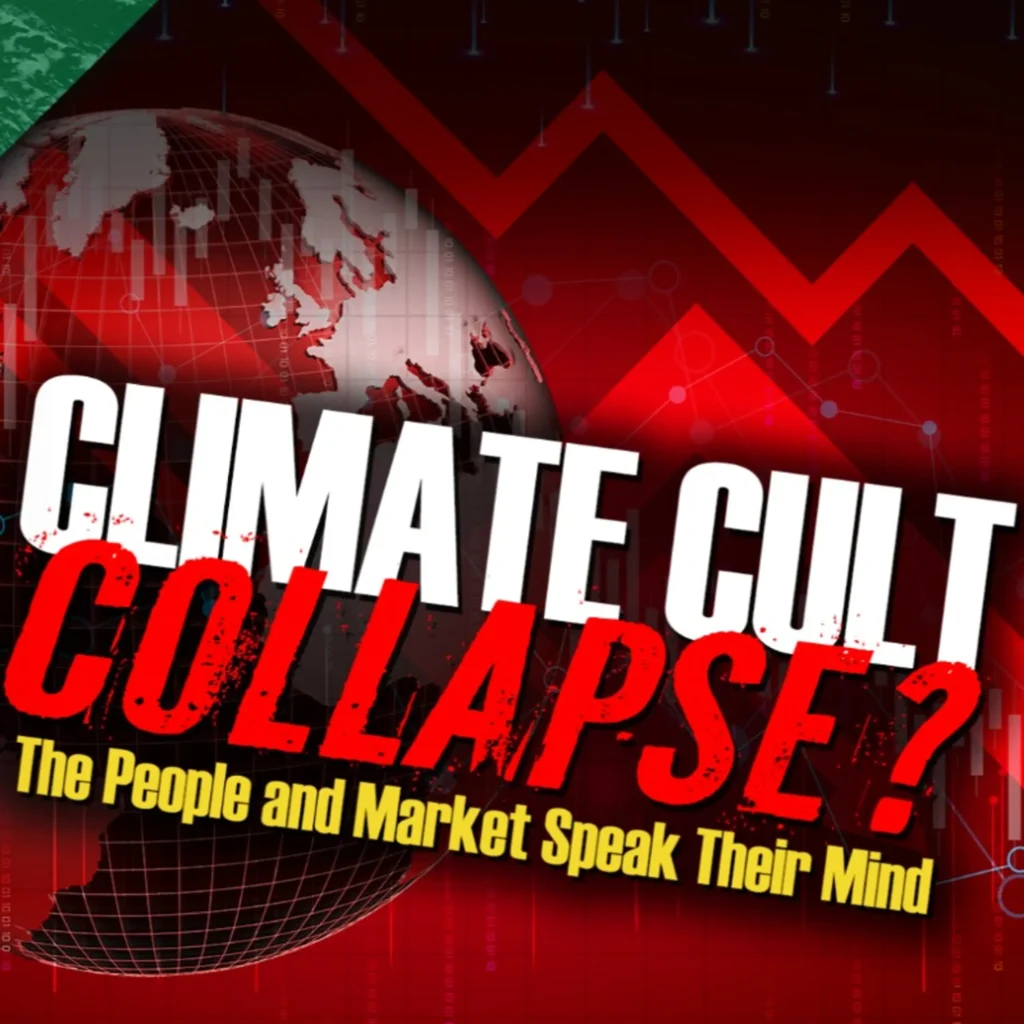In 2009, the Environmental Protection Agency (EPA) issued a flawed finding under the Clean Air Act stating that carbon-dioxide emissions threaten public health and welfare. The finding is commonly referred to as the “endangerment finding.” This policy gave the Obama administration a green light to pursue an aggressive agenda to curtail greenhouse-gas emissions emitted from power plants, other industrial facilities, and automobiles. The culmination of this agenda was the Clean Power Plan (CPP), which planned to cut carbon-dioxide emissions from existing power plants by 32 percent by 2030. (President Donald Trump has since ordered EPA to conduct a review of CPP.)
The endangerment finding relies on three lines of evidence for validation, but observed evidence and research has cast serious doubt on all three.
The first is a basic physical understanding of the effects of changing concentrations of greenhouse gases, known as “climate sensitivity.” Many estimates of climate sensitivity to increased concentrations of carbon dioxide appearing in the scientific literature since 2009 are well below the estimates used by EPA.
The second line of evidence for the endangerment finding asserts that indirect, historical estimates of Earth’s climate in the past suggest recent temperature changes are unusual and unnatural, and thus must be caused by humans. However, research has shown recent changes in temperature, sea-level rise, and the frequency of extreme weather events are not unusual in the historic and geophysical record.
The third line of evidence relies on the computer-generated climate models that are supposed to backcast past projections of future climate changes. The climate models relied on by EPA have forecast up to twice as much warming as has been reported by satellites, weather balloons, and unadjusted surface monitors, contradicting this line of evidence.
“The Endangerment Finding is the basis for a host of incredibly burdensome and wide-ranging regulations, ranging from auto fuel economy standards to the Clean Power Plan,” said a petition to EPA Administrator Scott Pruitt by the Competitive Enterprise Institute and the Science and Environmental Policy Project. The petition was written on behalf of 60 signatories. “These threaten access to affordable energy, as well as millions of jobs, and countless lives around the world. The finding has been used by other federal agencies to greatly expand their own regulatory programs, while other nations and international groups have relied on it to justify their own restrictions on affordable energy.”
So long as the endangerment finding remains in place, efforts to roll back unnecessary environmental regulations adopted in the name of fighting global warming will remain extremely difficult. “The endangerment finding must be redone, or all of this is for naught,” Steve Milloy, founder of JunkScience.com, told The New York Times. “If you get rid of the endangerment finding, the rest of the climate regulations just sweep themselves away. But if they don’t get rid of it, the environmentalists can sue, and then there’s going to have to be a Trump Clean Power Plan.”
States opposed to overzealous regulations passed under the guise of climate change should consider resolutions urging EPA to reopen and review the endangerment finding.
The following documents provide more information on climate change and the endangerment finding.
Draft ALEC Resolution Calling for EPA Review of the 2009 Endangerment Finding for Greenhouse Gasses
https://heartland.org/publications-resources/publications/alec-resolution-calling-for-epa-review-of-the-2009-endangerment-finding-for-greenhouse-gases
This resolution was discussed at the American Legislative Exchange Conference meeting in Nashville, Tennessee on December 6, 2017.
Coalition Letter to Members of the ALEC Energy, Environment, and Agriculture Task Force
https://heartland.org/publications-resources/publications/coalition-letter-to-members-of-the-alec-energy-environment-and-agriculture-task-force
This open letter to members of the American Legislative Exchange Council’s Energy, Environment, and Agriculture Task Force says the Environmental Protection Agency’s endangerment finding must be revisited if states are to return to their historic role as the nation’s primary regulator of energy.
Comments, Petitions, and Testimony Opposing EPA’s Endangerment Finding
https://heartland.org/publications-resources/publications/comments-petitions-and-testimony-opposing-epas-endangerment-finding
This document contains a list of comments, petitions, and testimony opposing the Environmental Protection Agency’s Proposed Endangerment and Cause or Contribute Findings for Greenhouse Gases Under Section 202(a) of the Clean Air Act.
On the Validity of NOAA, NASA, and Hadley CRU Global Average Surface Temperature Data and The Validity of EPA’s CO2 Endangerment Finding
https://heartland.org/publications-resources/publications/on-the-validity-of-noaa-nasa-and-hadley-cru-global-average-surface-temperature-data–the-validity-of-epas-co2-endangerment-finding
This paper shows the global temperature data used to estimate global average temperature, and thus make climate policy, is substantially flawed and contains politicized adjustments accounting for almost all the warming that has occurred since the middle of the 20th century.
On the Existence of a ‘Tropical Hot Spot’ and The Validity of EPA’s CO2 Endangerment Finding
https://heartland.org/publications-resources/publications/on-the-existence-of-a-tropical-hot-spot—the-validity-of-epas-co2-endangerment-finding
Researchers analyzing temperature data from satellites, weather balloons, weather stations, and buoys have found once El Ninos are taken into account, “there is no ‘record setting’ warming to be concerned about.”
Video: America First Energy Conference, Panel 5B, ‘The Endangerment Finding,’ Featuring Rick Belzer
https://heartland.org/multimedia/videos/rick-belzer-afec-panel-5b-the-endangerment-finding
Richard Burton Belzer, Ph.D., independent consultant in regulation, risk, economics, and information quality, delivers a presentation titled “Information Quality and the Endangerment Finding” at the America First Energy Conference in Houston, Texas on November 9, 2017.
Video: America First Energy Conference, Panel 5B, ‘The Endangerment Finding’, Featuring Harry MacDougald
https://heartland.org/multimedia/videos/harry-macdougald-afec-panel-5b-the-endangerment-finding
Harry W. MacDougald, J.D., one of the lead litigators in the 2009 case against the Environmental Protection Agency’s endangerment finding, delivers a presentation titled “Endangerment Finding: A Brief History” at the America First Energy Conference in Houston, Texas on November 9, 2017.
Why Scientists Disagree About Global Warming
https://heartland.org/policy-documents/why-scientists-disagree-about-global-warming
In this book published by The Heartland Institute, authors Craig Idso, Robert M. Carter, and S. Fred Singer say the most important fact about climate science, which they say is often overlooked, is scientists disagree about the environmental impacts of the combustion of fossil fuels on the global climate. There is no survey or study showing “consensus” on the most important scientific issues, despite frequent claims by advocates to the contrary. Scientists disagree about the causes and consequences of climate for several reasons. The authors say the only “consensus” among climate scientists is human activities can have an effect on local climate and the sum of such local effects could hypothetically rise to the level of an observable global signal. The key questions to be answered, they say, are whether the human global signal is large enough to be measured, and if it is, does it represent or is likely to become a dangerous change outside the range of natural variability? On these questions, an energetic scientific debate is taking place on the pages of peer-reviewed science journals, say the authors.
Climate Change Reconsidered II: Physical Science
https://heartland.org/publications-resources/publications/climate-change-reconsidered-ii-physical-science
Climate Change Reconsidered II: Physical Science is an independent, comprehensive, and authoritative report on the current state of climate science, published in October 2013. It is the fourth in a series of scholarly reports produced by the Nongovernmental International Panel on Climate Change, an international network of climate scientists sponsored by three nonprofit organizations: the Center for the Study of Carbon Dioxide and Global Change, the Science and Environmental Policy Project, and The Heartland Institute. (Also see the executive summary of Climate Change Reconsidered II: Physical Science: https://heartland.org/wp-content/uploads/documents/CCR/CCR-II/Executive-Summary.pdf)
Climate Change Reconsidered II: Biological Impacts
https://heartland.org/publications-resources/publications/climate-change-reconsidered-ii-biological-impacts
Released on April 9, 2014, Climate Change Reconsidered II: Biological Impacts is an independent, comprehensive, and authoritative report on the impacts of climate change on plants, terrestrial animals, aquatic life, and human well-being. (Also see the Climate Change Reconsidered II: Biological Impacts “Summary for Policymakers”: https://heartland.org/wp-content/uploads/documents/CCR/CCR-IIb/Summary-for-Policymakers.pdf)
Ten State Solutions to Emerging Issues
https://heartland.org/publications-resources/publications/ten-state-solutions-to-emerging-issues-2018
This Heartland Institute booklet explores solutions to the top public policy issues facing the states in 2018 and beyond in the areas of budget and taxes, education, energy and environment, health care, and constitutional reform. The solutions identified are proven reform ideas that have garnered significant support among the states and with legislators.
Nothing in this Research & Commentary is intended to influence the passage of legislation, and it does not necessarily represent the views of The Heartland Institute. For further information on this subject, visit Environment & Climate News, The Heartland Institute’s website, and PolicyBot, Heartland’s free online research database.
The Heartland Institute can send an expert to your state to testify or brief your caucus; host an event in your state; or send you further information on a topic. Please don’t hesitate to contact us if we can be of assistance! If you have any questions or comments, contact John Nothdurft, Heartland’s director of government relations, at [email protected] or 312/377-4000.





